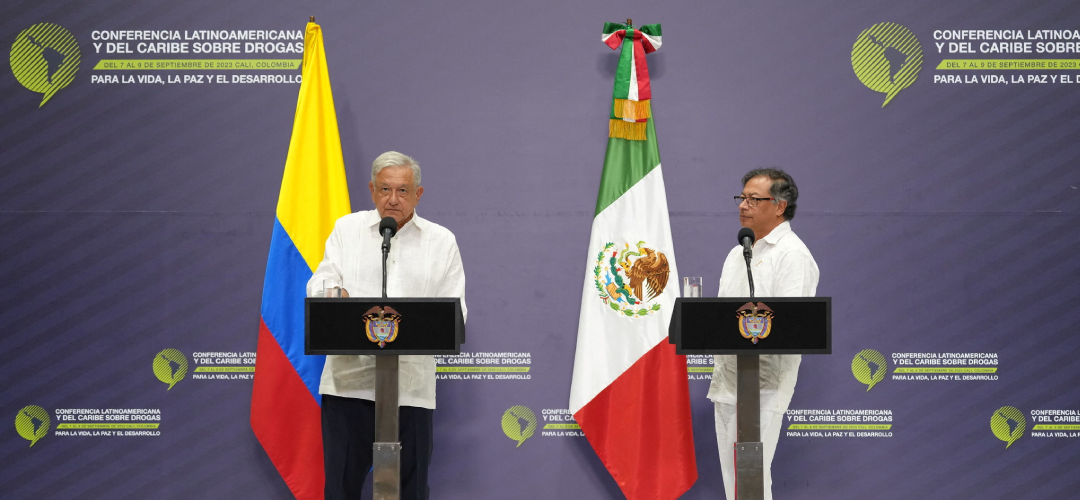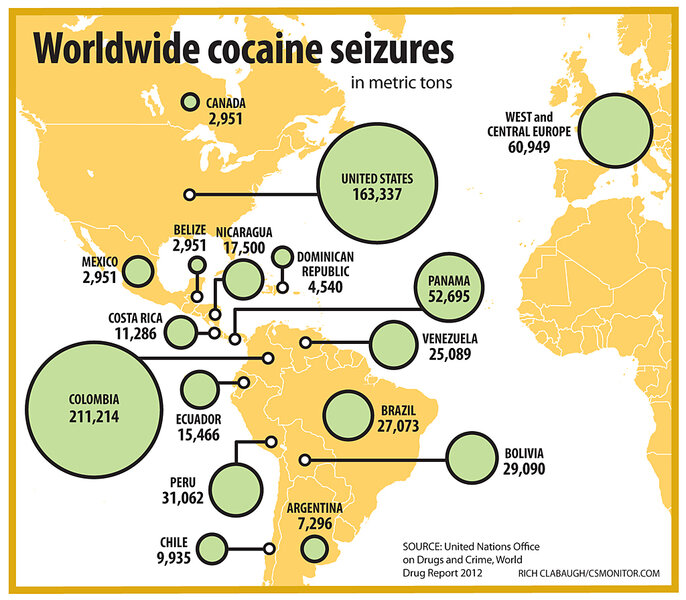The Drug Summit
September 16, 2023 | Expert Insights

Latin American leaders met in Cali (The heart of Narcoland), Colombia, on September 9, 2023, to discuss the issue of drug trafficking. The meeting was hosted by Colombian President Gustavo Petro, who proposed an alliance between Latin American countries to fight the drug trade. The meeting was attended by representatives from over 20 countries, including Mexico, Brazil, Peru, and Ecuador.
The leaders discussed the challenges of drug trafficking in the region and the need for a coordinated approach to address the problem. The alliance would recognize drug consumption as a public health problem rather than criminal. This would involve treating drug users with treatment and rehabilitation rather than arresting and imprisoning them. The alliance would also focus on reducing drug demand by addressing the root causes of drug use, such as poverty and inequality.
Background
Latin America has been a major hub for drug trafficking for many years. The region is home to some of the world's most powerful drug cartels, which control the production, transportation, and distribution of illegal drugs such as cocaine, heroin, and marijuana. The drug trade has had a devastating impact on Latin America. It has fuelled violence and corruption and has contributed to the poverty and inequality that are major drivers of drug use. It has also led to the spread of HIV/AIDS and other diseases.
There has been a growing movement in Latin America to reform drug policy in recent years. This movement is based on the belief that the current approach to drug policy is not working. The summit was a recognition that the traditional approach to fighting the drug trade, which has focused on law enforcement and criminalization, has not been successful.
The alliance discussed a variety of topics related to drug policy, including harm reduction, treatment, and prevention. They also discussed the need for more research on drug use and addiction.
Petro's proposal was met with mixed reactions. Some leaders supported the idea of an alliance, while others were more sceptical. However, there was a general consensus that the current approach to drug trafficking is not working. The conference also heard from representatives from the UNODC, who discussed the challenges of fighting drug trafficking in Latin America. They highlighted the need for a comprehensive approach that addresses the root causes of drug trafficking, such as poverty and inequality. The conference concluded with a call for action. The participants agreed to work together to develop a new drug policy for the region. They also agreed to share information and best practices.

Analysis
It is too early to say what impact the summit will have. However, it is a positive step that the leaders of Latin America are coming together to discuss the drug problem. While the alliance proposed by President Petro is a bold and innovative approach, the success of the conference will depend on the willingness of leaders to follow through on their commitments. They will need to invest in prevention, treatment, and harm reduction programs. They will also need to address the root causes of drug trafficking, such as poverty and inequality. Even more important, most members of the government are on the payroll of drug gangs, including law enforcement agencies and the military. It will be difficult to root out corruption that has taken such deep roots in governance in Latin America.
There is still a long way to go to achieve a drug-free world. The alliance could help to reduce the demand for drugs by addressing the root causes of drug use, such as poverty and inequality. It could also help to reduce the supply of drugs by disrupting the operations of drug cartels. However, consumer states like the U.S. have a major role to play. Domestically, they must work out legislation that makes drug smuggling less lucrative and reduces the demand for drugs through drug education programmes. Internationally, they must partner with producing countries in Latin America and provide financial assistance, technical expertise, and law enforcement cooperation.
The impact of the earlier Latin American and Caribbean Conference on Drugs is still felt. However, the conference helped raise awareness of the need for a new drug policy approach and build momentum for reform. In the years since the conference, several countries in the region have taken steps to reform their drug policies.
Assessment
- The region's leaders came together to discuss the growing problem of drug trafficking, and they proposed a new approach to the problem. The alliance proposed by President Petro is a bold and innovative approach, and it could significantly impact the region. A baby step is better than no step.
- The success of the alliance will depend on the commitment of the Latin American countries. They will need to work together to address the root causes of drug use and disrupt drug cartel operations. The alliance will also need to be supported by international cooperation, particularly from the United States.
- The long-term impact of the conference remains to be seen but it appears to be a positive step towards developing a more effective drug policy for the region








Comments